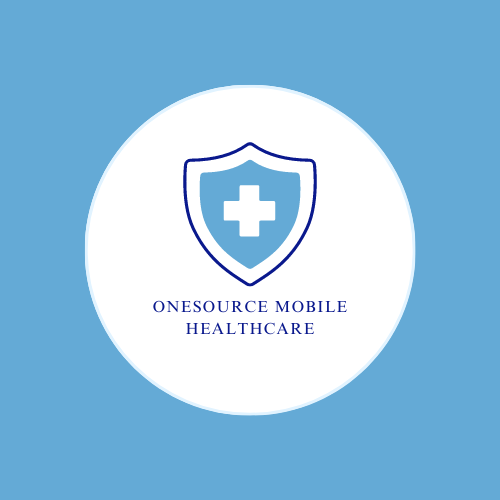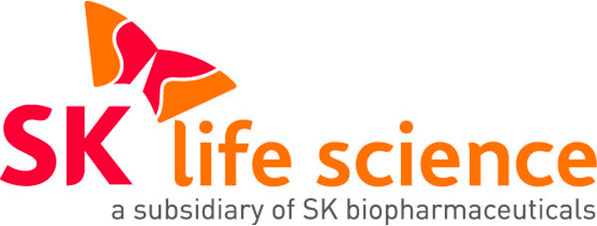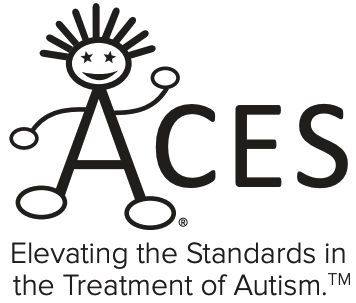We've found that many people are overwhelmed by the complexity of the multiple systems and processes it takes to get their needs or the needs of their loved ones met, so we've created a guide to help you get started and to serve as a reference along the way. You can always count on AAPPD to provide basic system information, resources, referrals, and news updates, and we hope you'll sign our email updates and check back with us to see how you can help support our advocacy efforts.
If you or your family member has a disability, one of the first things you will need to do is to familiarize yourself with the Division of Developmental Disabilities to learn what you qualify for. The Division of Developmental Disabilities (Division or DDD), within the Arizona Department of Economic Security (DES), is the state program that provides supports and services for eligible people who have at least one of the following diagnoses:
- autism;
- cerebral palsy;
- epilepsy;
- cognitive/intellectual disability; or
- under the age of six at risk of having a developmental disability
The Division of Developmental Disabilities has skilled intake staff available to answer questions that you have about the system and how to get started. You can contact them through their website at www.azdes.gov or by calling their main intake number at 602-542-0419 or toll free at 866-229-5553.
The Division has also put together a helpful guide for those who need help navigating the system. "Navigating the System: A Guide for Individuals and Families" is a great source of information, and can be found on the Division's website. Click here to take a look at the Navigating the System Guide.
For over 35 years, AAPPD has supported and advocated for its 110+ member organizations and the clients they serve. Our members strive to help adults and children with disabilities contribute to and remain a part of their communities by providing a variety of vital programs and services, including:
IN-HOME SERVICES:
Habilitation - Provides assistance to help a client learn activities such as brushing their teeth, using the bathroom independently, preparing a meal, or balancing a checkbook.
Attendant Care - Provides a certified, trained attendant to assist the client in maintaining safe and sanitary living conditions and/or maintaining personal cleanliness and activities of daily living.
Respite - Provides a certified, trained individual to supervise and care for a client, allowing the caregiver some personal time to run errands, go to a movie, and take a vacation or even a nap.
Homemaking - This service provides supports for a variety of housekeeping tasks. It allows a person to have their home kept in a clean and healthy condition.
RESIDENTIAL SERVICES:
Group Homes - licensed residential home that provides 24-hour nonmedical care and supervision to adults or children in a structured environment, with services provided at least in part by staff employed by the licensee.
Developmental Homes - residential home that provides nonmedical care and supervision to adults or children in a family environment that assists in teaching social norms.
Medical Group Homes - licensed residential home that provides 24-hour care, medical care and supervision to adults or children in a structured environment, with services provided at least in part by staff employed by the licensee.
Intermediate Care Facilities - Health and habilitation services are provided to people with developmental disabilities. Services are provided at facilities in Maricopa County, and at the Arizona Training Program at Coolidge. Admission must be approved by the Assistant Director of the Division.
Skilled Nursing Facilities - This service provides skilled nursing care, residential care and supervision to members who need nursing services on a 24-hour a day basis, but who do not require hospital care.
EMPLOYMENT SERVICES:
Employment services provide people with the help needed to get and keep a job. The services below are provided under employment services and support:
Employment Support Aide – This service provides people with ongoing one-on-one support needed for them to remain in their job.
Center-based – Provides supervised employment within a provider-owned/leased facility where the majority of the workers are people with disabilities.
Group-supported – On-site supervision is provided to small groups of people working in an integrated community setting. Groups can range from two to six individuals.
Individual-supported – Provides regular contacts at a client’s jobsite in the community.
Transition to Employment – provides individualized instruction, training and supports to promote skill development for integrated and competitive employment.
DAY SERVICES:
Day treatment and training services provide training, supervision, and activities as appropriate. These services promote skill development. These services are typically offered in a community setting and are intended to help people learn safety skills and socialize.
Here are programs that our members may offer:
- Center-based Day Programs (child or adult)
- Community-based Day Programs (child or adult)
- After School (child)
- Summer Programs (child)
THERAPIES:
Speech - training to help people with speech and language problems to speak more clearly
Occupational - a form of therapy that encourages rehabilitation through the performance of activities required in daily life.
Physical - the treatment of disease, injury, or deformity by physical methods such as massage, heat treatment, and exercise rather than by drugs or surgery.
Music - the clinical and evidence-based use of music interventions to accomplish individualized goals within a therapeutic relationship by a credentialed professional who has completed an approved music therapy program.
Communication - the face-to-face process of interacting that focuses on advancing the physical and emotional well being of a patient.
Respiratory - the treatment or management of acute and chronic breathing disorders, as through the use of respirators or medication in aerosol form.
NURSING SERVICES:
Provides skilled nursing in a client’s home and may include care, coordination of medical services, assistance accessing other medical services and professionals, and education about medical needs and supports.
Use our searchable provider database to see which of our members provide services in your area.
Frequently Asked Questions
Over the years, we’ve cultivated answers to questions we receive from individuals and family members researching disability services in Arizona. Take a look below, and if we don’t answer your question, please contact our staff by email at info@aappd.org or by phone at 602-510-9373.
How can AAPPD help me?
AAPPD is a 501(c) 4 statewide consortium of providers licensed to deliver services to individuals with physical and developmental disabilities. While AAPPD does not do personal advocacy for individuals and families, we can help refer you to resources or other advocacy groups that may be able to assist.
For over 30 years, AAPPD has supported and advocated for its 80+ member organizations and the clients they serve. Our members strive to help adults and children with disabilities contribute to and remain a part of their communities. In addition, member organizations are continually seeking ways to improve programs and services for individuals with disabilities and their families.
If you are trying to learn more about the system, please take the time to read the Division’s “Navigating the System: A Guide for Individuals and Families.” Click here to take a look at the Navigating the System Guide.
If you are searching for a provider, we are happy to assist with our searchable database of member organizations. You can search by service and geographic area to help in your research.
If you are looking for another resource, please take a look at our comprehensive resources section at the bottom of this page.
Finally, if you’re looking for news updates and legislative advocacy information from AAPPD, please sign up for our email updates.
How do I find a provider to help me or my family member?
If you or your family member has a disability, one of the first things you will need to do is to familiarize yourself with the Division of Developmental Disabilities to learn what you qualify for. The Division of Developmental Disabilities (Division or DDD), within the Arizona Department of Economic Security (DES), is the state program that provides supports and services for eligible people who have at least one of the following diagnoses:
- autism;
- cerebral palsy;
- epilepsy;
- cognitive/intellectual disability; or
- under the age of six at risk of having a developmental disability
The Division of Developmental Disabilities has skilled intake staff available to answer questions that you have about the system and how to get started. You can contact them through their website at www.azdes.gov or by calling their main intake number at 602-542-0419 or toll free at 866-229-5553.
The Division has also put together a helpful guide for those who need help navigating the system. “Navigating the System: A Guide for Individuals and Families” is a great source of information, and can be found on the Division’s website. Click here to take a look at the Navigating the System Guide.
Take a look at the Navigating the System Guide to learn more about eligibility for services through the Division.
The Arizona Health Care Cost Containment System (AHCCCS) determines eligibility for the Arizona Long Term Care System (ALTCS). AHCCCS is Arizona’s state Medicaid agency. AHCCCS pays for ALTCS services provided through the Division. AHCCCS is also the umbrella agency for other programs, including Kids Care, Medicare Savings Programs, and others.
When a person is made eligible for the Division they must also apply to ALTCS. To be eligible for ALTCS you must meet financial and medical requirements. The Division receives federal funds to provide services for people who are also eligible for ALTCS. Arizona Long Term-Care System eligibility is required to receive most services funded through the Division. If you are not eligible for ALTCS and over the age of three, only limited state funds are available.
If you have any questions about ALTCS eligibility, contact AHCCCS at 602-417-4000 or 1-800-654-8713. Further information can be found at azahcccs.gov/applicants/application/ALTCS.aspx
What resources are available to help me understand how to better navigate the system?
The Division has also put together a helpful guide for those who need help navigating the system. “Navigating the System: A Guide for Individuals and Families” is a great source of information, and can be found on the Division’s website. Click here to take a look at the Navigating the System Guide. Take a look at the Navigating the System Guide to learn more about eligibility for services through the Division.
The resources section also contains a comprehensive list of many of the state and national programs available to those with disabilities.
Who are AAPPD’s members and what makes them different from other providers for people with disabilities?
AAPPD members and their staff are passionate about providing the best quality of life possible for their clients. Our membership consists of more than 80 diverse organizations statewide that vary in business structure, budget size, and culture, and all are contracted with DES/DDD to provide services to individuals with developmental disabilities.
When providers join AAPPD, they sign a code of conduct that holds them to a higher standard. Not only do our members adhere to strict federal and state regulations, they are dedicated to helping their clients engage in and remain in their communities. When you choose an AAPPD provider, you can trust that your family member will receive exceptional care and service by professional, compassionate caregivers.
You can see a full list of AAPPD members on the Our Members page, and search the services they provide on our searchable database.














